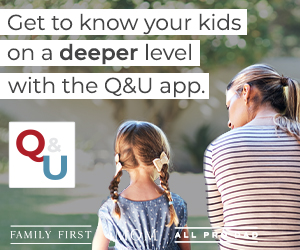“Hey,” I said. “Did you hear me? I said I’m proud of you for the good teacher conferences.” My daughter broke her gaze from the computer screen. “Thanks,” she said, flatly, and then returned to her work. I sat there a moment, stumped. I’d expected more of a reaction. At least a smile. But she didn’t seem to care what I’d said. What was the deal?
Many kids like being praised. It makes them feel good. But at times, some kids have a hard time taking it. Here are the top 5 reasons a child doesn’t like praise.
1. She gets too much.
If your child ignores you when you give praise, she might get too much of it. And your praise might not be the type that means a lot to her. Instead of telling your kid she’s a great driver, you could say instead that “you’re doing a great job checking your mirrors before changing lanes.”
We’ve all been told to “praise the process and not the result,” so hold off on overpraising and limit your praise to the efforts your child makes to earn it. Instead of “I’m proud of your good teacher conferences,” I could’ve said to my daughter, “I’m glad to hear you’ve been participating more in class.” With this kind of praise,” say the folks at Nemours Kids Health, “kids put effort into things, work toward goals, and try. When kids do that, they’re more likely to succeed.”
2. He doesn’t think he deserves it.
Sometimes a child doesn’t like praise because he doesn’t believe he deserves it. If you tell him he played a great game or that he’s really talented and he doesn’t agree, he might shrug off the compliment and even get angry with you.
If you find your child doesn’t like praise, “stick with descriptive comments,” says clinical psychologist Eileen Kennedy-Moore. You could say, “That was a tough game!” or “You got a single and a double tonight!” This way, you’re not providing any room for your child to contradict overblown statements or judge himself too harshly.
3. It feels like pressure.
“Wow. Lacy didn’t make show choir, but you did. I’m so proud of you!” This sort of praise sets up a competitive environment where your child might feel pressure to be the best. “You got an A on your Spanish final! You’re so good at foreign languages!” Again, this type of praise can feel like pressure. She may think, “Maybe I lucked out. But now I need to get A’s going forward.”
Instead of creating a pressure-filled situation for your child, focus on her efforts rather than the end result: “All that practice really strengthened your voice” and “Those study sessions with your friends were helpful!”
4. He doesn’t know what to say.
“Um, honey, did you hear me?” I asked. “I said your freestyle stroke looked more fluid today. I can tell you’re really trying.” My son still said nothing. I felt like grabbing his shoulders to make him look at me. Finally, after what felt like an agonizingly long minute, he grunted in response.
Does your child avoid eye contact? Does he busy himself with other things after you give a genuine compliment? Or perhaps he disagrees with you? (“I’m still bad at it.”) If your child bats away your praise or freezes up and says nothing, he may look like a child who doesn’t like praise. In reality, he may simply not know how to take a compliment. You could do a quick role play in the moment. Have him practice saying thank you and teach him that compliments and genuine praise are kindnesses from others and deserve a polite reply.
5. She’s embarrassed.
“Mom, stop,” my daughter said, her face flushing bright red as she returned from the stage and sat down beside me. She’d had a great piano performance and I’d greeted her on my feet, clapping and smiling. At that moment, I didn’t understand why my praise bothered her. But Kennedy-Moore says that some kids think everyone is “looking at them and judging them” and would respond better if given praise in private.
So, instead of making her uncomfortable, save your compliments for the ride home or later that night at bedtime. If your child doesn’t like praise, try giving her a smile in the moment or a pat on the back instead. It might be enough to make her feel good, but not make her turn multiple shades of red.
If you have a child who doesn’t like praise, how do you address it?








